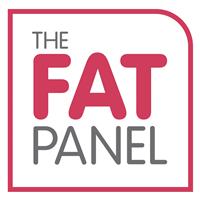Tag Archives: arteries
Tangerines protect from heart disease
New York: Eating tangerines may help protect against heart attacks, diabetes, and obesity, according to new US research.
This is because it contains a substance called Nobiletin, a pigment found in tangerine peel, is ten times more potent than a similar one derived from grapefruit which protects from obesity and metabolic syndrome.
 Researchers from the University of Western Ontario, in Canada, fed two groups of mice a diet high in fats and simple sugars, reports the journal Diabetes.
Researchers from the University of Western Ontario, in Canada, fed two groups of mice a diet high in fats and simple sugars, reports the journal Diabetes.
One group had symptoms of illness such as elevated cholesterol and triglycerides, high blood levels of insulin and glucose and a fatty liver – all of which increase the risk of diabetes and heart disease. But a second group on the same diet but who were fed Nobiletin showed no similar rise. The substance also protected them from atherosclerosis, the build-up of plaque in arteries, which can lead to a heart attack or stroke.
Eating tangerines could protect against heart attacks, diabetes and stroke as well as staving off obesity
Nearly 50% of adults don’t know their fats

London: Nearly half the population (45%) do not realise that too much saturated fat (SAFA) is bad for their health.
This latest research from independent UK body, The Fat Panel, also reveals that whilst one in seven fail to link coronary heart disease with excessive SAFA intake, nearly one in four believe that reining in saturated fat consumption will improve their love lives.
These findings re-enforce the panels claims that Brits do not understand fats unaware of which are good and which are bad for their health. As a result, on average the UK eats 17% too much saturated fat; raising the risk of developing cardiovascular disease. In view of this, the Food Standards Agencys (FSA) has commissioned a consultation on how to reduce the nations intake of saturated fat and energy.
Most of us should be worrying less about the amount of fat we are consuming, and more about what types of fat were including in our diets. The research is worrying, as it shows that many of us are still unaware of the risks of eating too much saturated fat, despite health professionals and academics long-term concerns backed by a wealth of clinical evidence, said Dr Sarah Berry of The Fat Panel.
Its good to see the Government shining a spotlight on this harmful fat. If it hopes to see a reduction in the amount of saturated fat that people are eating, we need to help people to understand SAFA and why its so bad for your health.
There is a lot of public confusion over which foods are high in saturated fat, making it difficult for the public to know which fats and foods they should avoid or cut down on. More than one third of those questioned (35%) believes that sunflower oil is high in saturated fat (it contains just 12%), whilst more than one quarter think that rapeseed oil is high in this bad fat (it contains just 8% saturated fat).
Nearly one in 10 of those questioned do not realise that butter is high in saturated fat. A further one in eight does not think cakes and biscuits have a high SAFA content. In addition, one in 10 are unaware of meat products, such as meat pies and sausages, containing high levels.
Sian Porter of The Fat Panel says By understanding that saturated fat is bad for the body, the next step is for people to recognise which foods contain these. Snacks such as cakes, biscuits and pastries contain high levels but this can easily be rectified by simply swapping these for healthier options like fruit or even toast with spread which on average contains 25% less saturated fat. Its all about education, and having the knowledge to make informed and as a result healthier choices.
Recent moves on food labelling should help people make these choices; however just half of us even look at the on-pack information when buying butter or spreads for instance, and only one in six look at how much saturated fat is in the pack. When thinking about saturated fat content, all spreads are at least 25% lower in saturated fat than butter and some contain much less with certain spreads offering up to 83% less saturated fat. More and more people are opting for low-fat products, whether on health or diet grounds, but it seems like few consider what type of fat a product contains.
The Fat Panel
Dr Sarah Berry BSc Msc PhD RNutr
Dr Berry is a registered nutritionist, working at kings College, and her specialist area of knowledge and research is lipid metabolism and coronary heart disease risk.
Sian Porter MScBsc(HONS) RD
Sian is a state registered dietician and holds an MSc in Health Economics.
Dr Paul Stillman MB ChB DRCOG PGCHE
Dr Stillman is in general practice in Crawley, Sussex and is a general practice trainer with the British Postgraduate Medical Federation.
Dr Pamela Mason, PhD, MSc, MRPharmS
Dr Mason is a nutritionist and pharmacist.
Dr Chris Steele MB, ChB
Dr Steele is a general practitioner and is the regular ‘doc’ on ITV’s ‘This Morning’ show. He is Health Journalist of the Year.
Dr Amanda Kirby MBBS MRCGP MFFP
Dr Kirby is a GP in Cardiff, with specific experience in community paediatrics.
Research was undertaken by Kember Associates with adults across the UK.
Statins may be new weapon against Alzheimer’s
Seattle: The family of anti-cholesterol drugs called statins and taken by millions around the world, can protect against Alzheimer’s disease, according to new research.
An examination of brain tissue has provided the first direct evidence that statins – taken to prevent heart disease and strokes – can also ward off dementia and memory loss. The study is published in the American Journal of Neurology.
The new findings s come from a study of 110 brains – donated for medical research – at the University of Washington School of Medicine in Seattle. The researchers led by Dr Gail Li examined the brains for changes linked to Alzheimer’s -including the creation of ‘plaques’ and ‘tangles’ made from the protein called beta amyloid.
These changes appear in the brain long before any symptoms of dementia develop. Eventually, they damage enough brain cells to trigger confusion, memory loss and eventually death. The researchers found far fewer tangles in the brains of people who had taken statins, compared to those who had not.
The findings were true even after age, sex and the history of strokes were taken into account. This is the first study to compare the brains of people who took statins with those who did not.
Dr Eric Larson, study co-author said: “These results are exciting, novel and have important implications for prevention strategies.”
Statins work by blocking the action of a chemical in the liver which is needed to make the ‘bad’ form of cholesterol, LDL. Reducing levels of bad cholesterol keeps blood vessels unclogged.
The researchers are not sure how statins also prevent the buildup of protein tangles in the brain. They suspect that a healthy flow of blood is a key factor.
Another study, five year’s ago at Boston University found that statins may cut the risk of Alzheimer’s by as much as 79 per cent, even in people with a family history of the disease. Some small- scale studies have found an apparent link between statins and cancer and Parkinson’s disease. Other studies, however, suggest that the drugs can ease the pain of rheumatoid arthritis.
Walnuts preserve arterial health
Barcelona: Walnuts are rich in a nutrient that protects the health of arteries, scientists have discovered.
It is the damage caused by fatty foods which causes hardening of the arteries, the main cause of heart attacks and stroke.
In a study at Spain’s Hospital Clinico new research published in the Journal of the American Cardiology reveals that just of an ounce of walnuts a day (28g) – seven or eight nuts – is enough for optimal health.
The research is the latest to reveal the health benefits of eating seeds and nuts such as almonds, pumpkin and sunflower which contain vital protective oils and other nutrients.
In the study, Dr Emilio Ros, an expert in heart health, examined how walnuts countered the effects of eating fatty foods in a group of healthy adults. The results showed that even amongst those who ate fatty foods such as cheese and salami, the walnuts helped preserved elasticity and flexibility.
Arteries of heart disease sufferers age prematurely
Cambridge: Heart disease suffers have advanced deterioration of their arteries, according to scientists at Cambridge University.
In early stages of heart disease arteries will be between five and 15 years older than a person’s real age. But in advanced cases they will be more than 40 years older.
Professor Martin Bennett, British Heart Foundation professor of cardiovascular sciences, whose research group at Cambridge University led the research, said that a combination of high blood pressure, smoking and high cholesterol aged the arteries prematurely.
The study published in the journal Circulation Research, used discarded human tissue from heart bypass and transplant patients to examine artery cell ageing.
Prof Bennett’s team, which collaborated with surgeons and pathologists from Papworth Hospital, near Cambridge, found the smooth muscle cells of diseased blood vessels showed evidence of ‘ accelerated’ damage.
Heart scan that can spot disease
London: A new scan that can spot heart disease up to ten years before symptoms appear is proving startlingly successful. A quarter of people scanned so far at one UK centre were found to have significant heart disease — despite having no symptoms.
The scan, which detects furring up of the arteries at its earliest stages and which has picked up disease in people as young as 35, allows preventive treatment to be taken before any damage has been done to the heart.
‘The fantastic advantage of this technology,’ says Dr Paul Jenkins, medical director of the European Scanning Centre, ‘is that it picks up disease when you can do something about it, whether it’s lifestyle changes, drugs or surgery.’ The electron beam computed tomography scan, or EBCT, is a sophisticated X-ray that detects coronary calcification — how hardened the arteries are — which is the first sign of heart disease.
Most other tests, such as exercise stress ECG (which measures the rhythm and electrical activity of the heart) or stress thallium (in which a radioactive marker is put into the bloodstream to reveal blood supply to the heart muscles) are reliable indicators only when heart disease is already so advanced that it has stopped the heart from working properly.
The scan, available at only a handful of UK centres, takes a series of images of the heart over a few minutes, while the patient is fully clothed, lying flat on their back. Then a ‘calcium score’ is calculated, which is compared with the scores of other men or women of the same age to determine individual risk of heart disease.
Treatment depends upon the level of calcium found and the age of the patient. For many, it will simply be lifestyle changes involving diet and exercise. For others, it will be statins, the cholesterol-lowering drug, while for a few it will mean angioplasty to open up the arteries, or bypass surgery.
‘The scan is non-invasive with very low-dose radiation,’ says Dr Jenkins, who is also a consultant physician at St Bart’s Hospital in London, ‘and it is an open scanner, so there is no problem for people with claustrophobia.
‘Calcium should be in your bones, not in your arteries. The total cost of heart disease in the UK is £7 billion and a lot of that goes on patching up people.’
Data from the European Scanning Centre shows how effective the scan can be: ‘We picked up many people who had very significant heart disease, before it had caused symptoms,’ says Dr Jenkins.
Although the scan does not calculate the risk of a stroke — which can be caused by furring up of arteries to the brain — the results can be an indicator, as people who have furring of the heart arteries are more likely to have furring up of the head and neck arteries. Ultrasound scans can assess stroke risk more directly.
Advice about just who should have the scan varies. In America, where it has been available for longer, some centres advise that men over 40 and women over 45 should consider an EBCT scan.
The more risk factors you have — high cholesterol, high blood pressure, smoking, diabetes, obesity, sedentary lifestyle, stress, and family history of heart disease — the more important the scan is.
The scan is available privately at the European Screening Centre in Harley Street, London, for £525.



